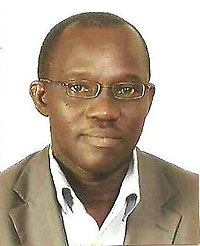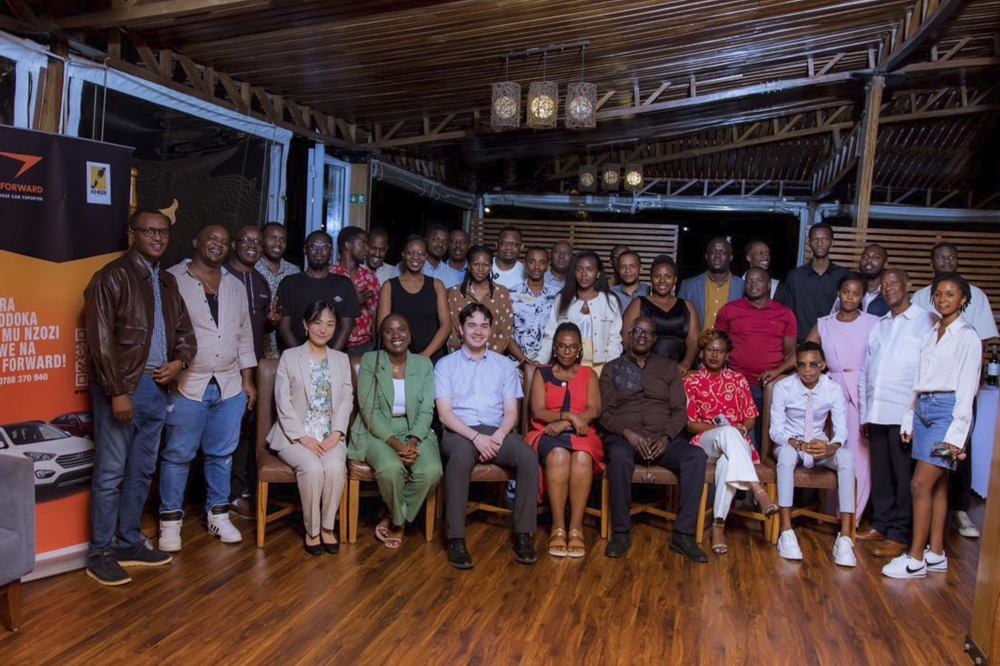The targeted shelling in a public market in Rwanda’s Rubavu District, Western Province, yesterday, by the DRC’s armed forces (FARDC) in which a breast-feeding mother was instantly killed and her two-month baby seriously injured, is yet another indication that the Congolese government is determined and keen to externalise and consequently create a scapegoat for its catalogue of failures to address its endemic internal political woes.


The targeted shelling in a public market in Rwanda’s Rubavu District, Western Province, yesterday, by the DRC’s armed forces (FARDC) in which a breast-feeding mother was instantly killed and her two-month baby seriously injured, is yet another indication that the Congolese government is determined and keen to externalise and consequently create a scapegoat for its catalogue of failures to address its endemic internal political woes.Two hours after the attack, another bomb landed at the Grand Barriere border in Rubavu, injuring one person, and within just 10 minutes, eight more bombs rained on Busasamana village in the same district. In the last few days, a total of 34 bombs and rockets have been fired directly into Rwanda by the DRC army.It is cynical to say the least, that while innocent Rwandan civilians are being targeted and senselessly killed, the international community and all those claiming to be protecting civilians in and around the DRC’s troubled Goma town are conspicuously silent.Once again, the DRC is bleeding and the spill-overs are affecting those that have nothing to do with the conflict and war in the east of a country that has been described by many as Africa’s most failed state.From the look of it, few are paying attention to Rwanda’s continuous alarm and indications that the bombings from across its border constitute serious violations of its territorial integrity and hard-earned security which is as precious as the lives of those who are being killed.That the FDLR, the genocidal machinery that killed over a million Rwandans in 1994 as the UN stood idly by, are among the very people, once again, shelling and killing innocent people in Rwanda, is a gamble none ought to take.The warning signs are visible and clear and the solution is not the continued denials from both the DRC government and Monusco even as the overwhelming evidence is difficult to escape.While reports indicate that yesterday, Thursday, August 29, France was seeking an emergency UN Security Council meeting to show how aggrieved and saddened it was, after a Monusco soldier was killed by the M23 rebels following combined and sustained attacks by the UN peacekeeping force, FDLR and FARDC on M23 positions, nothing is being said about the death of the innocent Rwandan mother in Rubavu.These double standards are part and parcel of the problem in the DRC; nobody is bothered by whatever happened to the Kampala peace talks between the DRC and the M23. While the talks presented the best chance to deal and tackle the mess in the eastern DRC, the whole world is now focused on Syria and no one is keen to call on Kinshasa to resume the talks.The Democratic Republic of Congo must stop the scapegoat comedy and take responsibility for its own failures. Nobody, neither Monusco nor France will ever solve Congo’s problems without guaranteeing a sense of belonging and security for all its citizens.With the current violent approach, Congo should not expect any sustainable peace. With this tragic failure, Kinshasa has only excelled in externalising the blame to outsiders. This approach has not worked for the DRC for the last 18 years and will not work today.As once indicated by one of Congo’s citizens, Obadias Ndaba, an analyst on African Affairs, resentment of a section of its own people, the Congolese Rwandophones who have endured cyclical episodes of genocidal persecution, is at the heart of eastern Congo’s instability. What we are seeing is an outcome of years of systemic ethnic cleansing with impunity. Hate speech against Congolese Tutsi has been on the rise ever since the 1994 Genocide in Rwanda. In 1998, thousands of Congolese Tutsis were lynched and killed across the country. In 2004, hundreds of Congolese Tutsi were killed and many more injured in Gatumba refugee camp in Burundi. The perpetrators boasted about the killings in international media and nothing was done to bring them to justice.The act of shelling and killing civilians in another country is a game no country would tolerate and the price to pay for this latest provocation from the DRC government might be too high for all of us.The writer a media expert and commentator based in Kigali.




